Service FAQs | Harley Davidson Dealer In Tennessee
What Is Involved in a First Service?
Any Service we do on a Harley-Davidson® bike is much more than a simple oil change.
In addition to changing the oil we do the following:
What if I Just Want My Oil Changed?
Not a problem. If you are in between services, traveling or just want to put some fresh oil in the bike, we can certainly accommodate that need find oil change near me, oil & filter change in Pigeon Forge, TN.
Should I Winterize My Bike if I Won't Be Riding for a Month or Two?
Yes! There are two important things you should do before storing your bike:
Why Does It Cost So Much Money to Tune a Newer Fuel Injected Bike?
Unlike the days of carburetors when you could just change a jet and increase or decrease your fuel, there are no mechanical adjustments that can be made on our new Fuel Injection systesm because the Fuel and Spark are controlled by a computer (ECM). Any time you change exhaust, intake or any engine component, the ECM needs to be adjusted to accomodate these changes. This is where the tuning comes in. The Harley-Davidson® Screamin' Eagle® Race Tuner is the most dependable and accurate Tuner on the market. Unfortunately just buying the Tuner only gives you the tool needed to make changes to your ECM by itself but it doesn't actually change anything. In order to accurately tune your bike to the combination of parts you have installed, we place your bike on our State of the Art DynoJet 250i Dynamometer and graph your Air/Fuel Ratios (AFR). The Tuner allows us to make changes to your ECM to get the best AFR for performance, drivability and reliability of your bike. We can also adjust Timing, Warm-Up Fuel, Rev Limit and much more using this system.
So, in order to ensure that your bike will perform correctly and last a long time it needs to be set up correctly. A bike from the factory is set up for how it comes from the factory (stock pipes). Any alterations mean the bike needs to be tuned. My transmission clunks when going into gear. Is that normal? Generally speaking, yes. Our transmissions are what is termed "a constant mesh gear design." That means that the teeth of the gears are always in contact with each other. When you shift, what is happening is that you are actually a gear over to lock into another gear. If everything is not aligned just right (especially when going into first from neutral) you get a clunking sound as the gears lock into each other.
